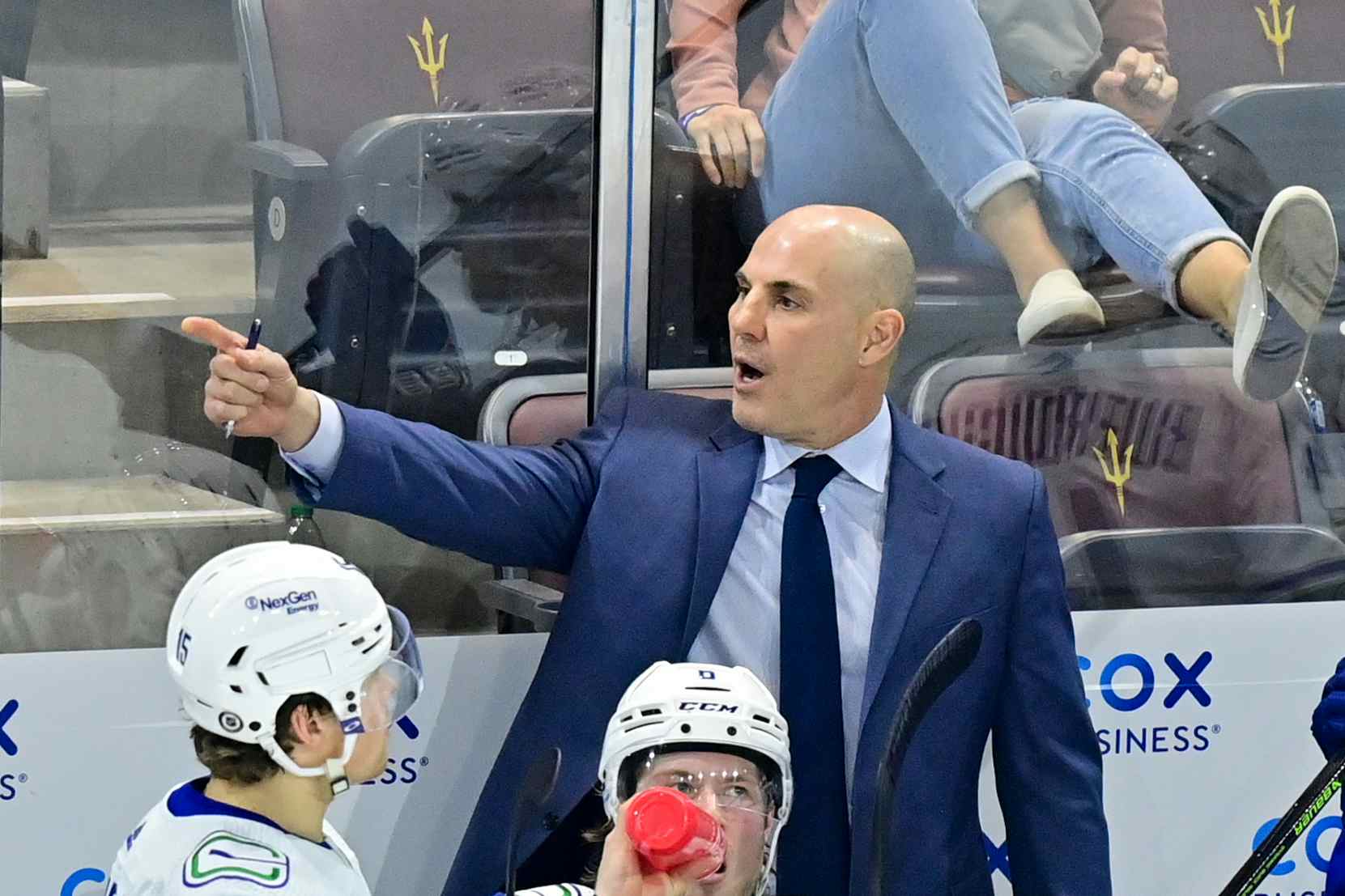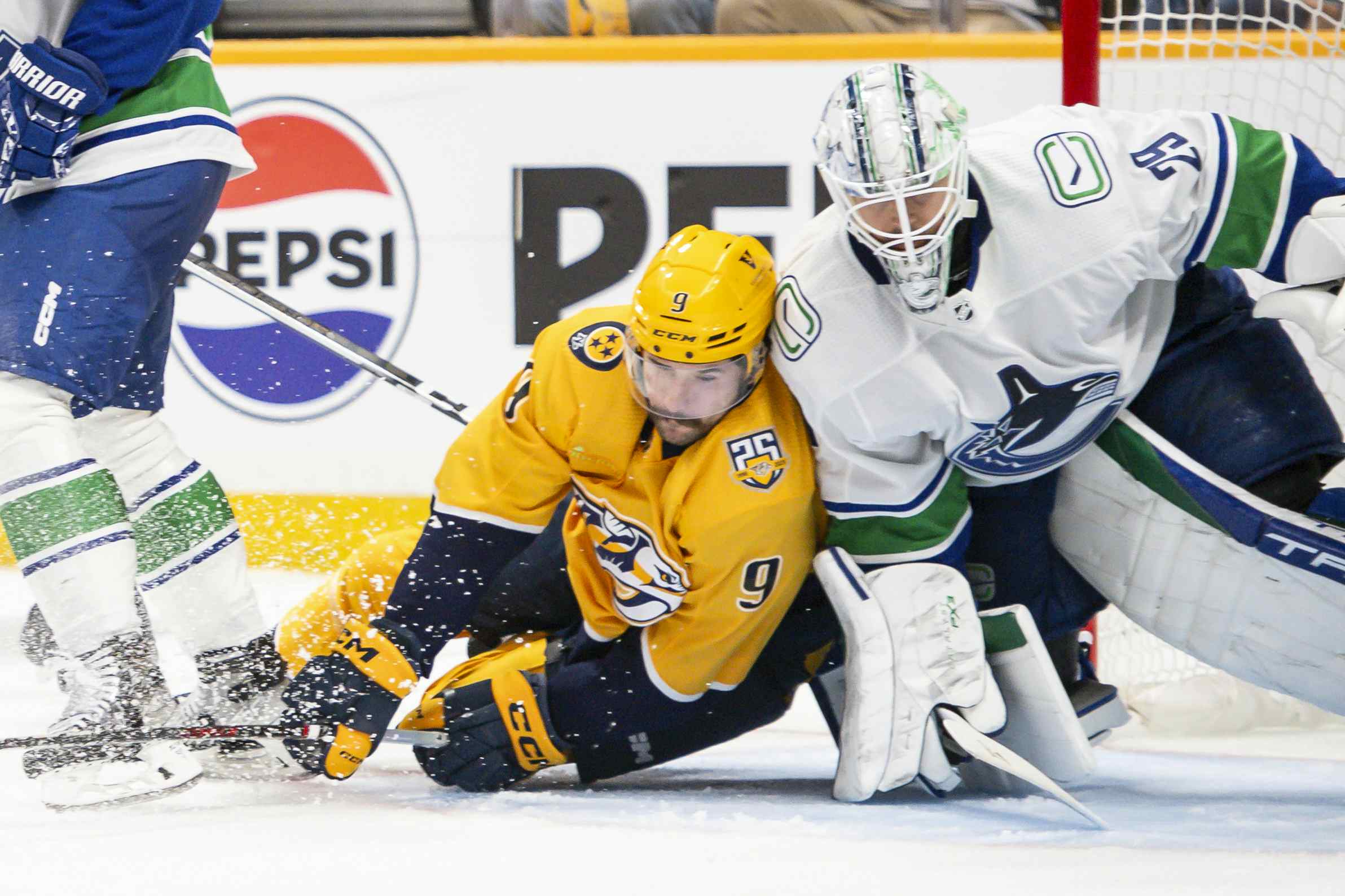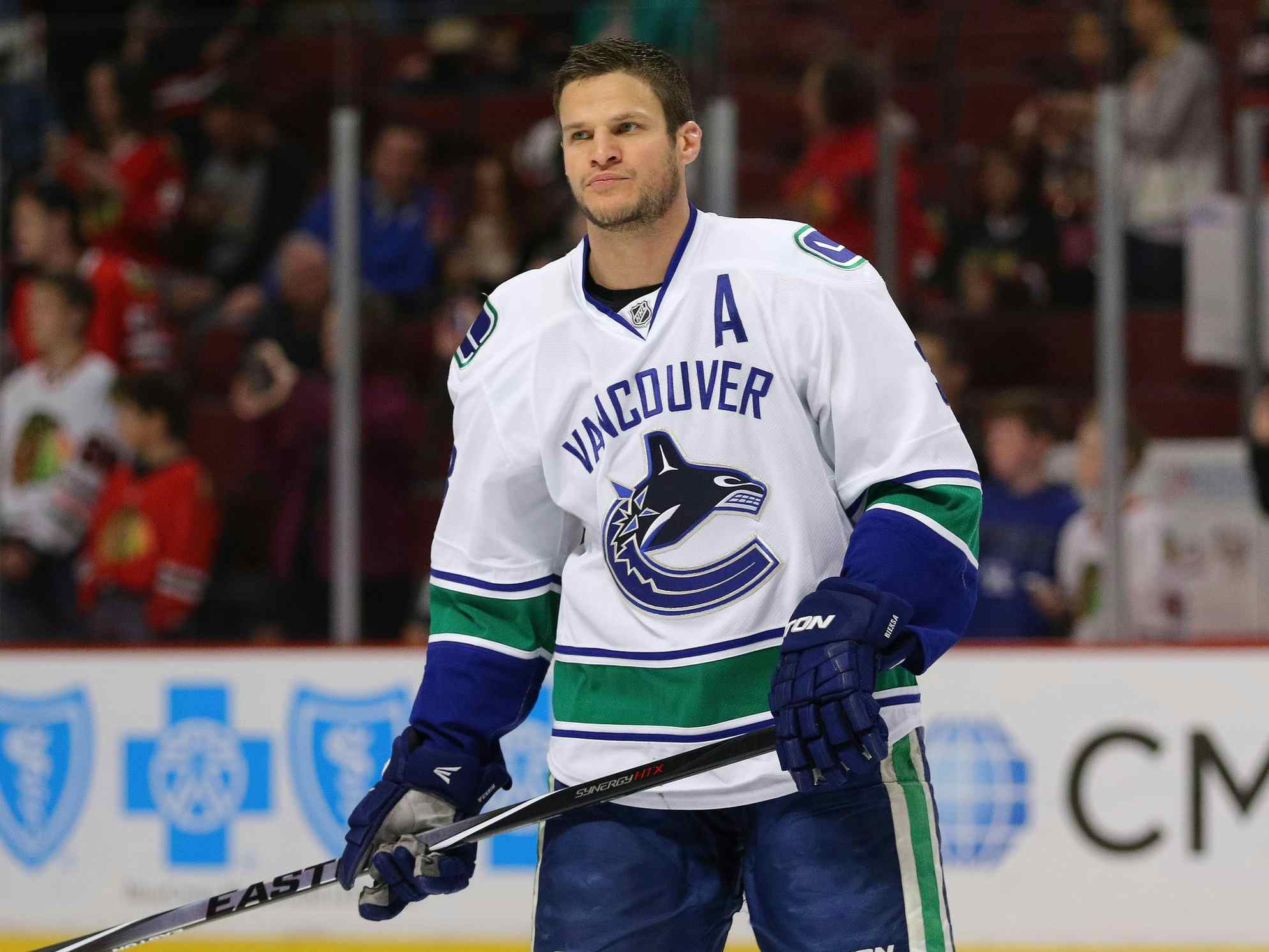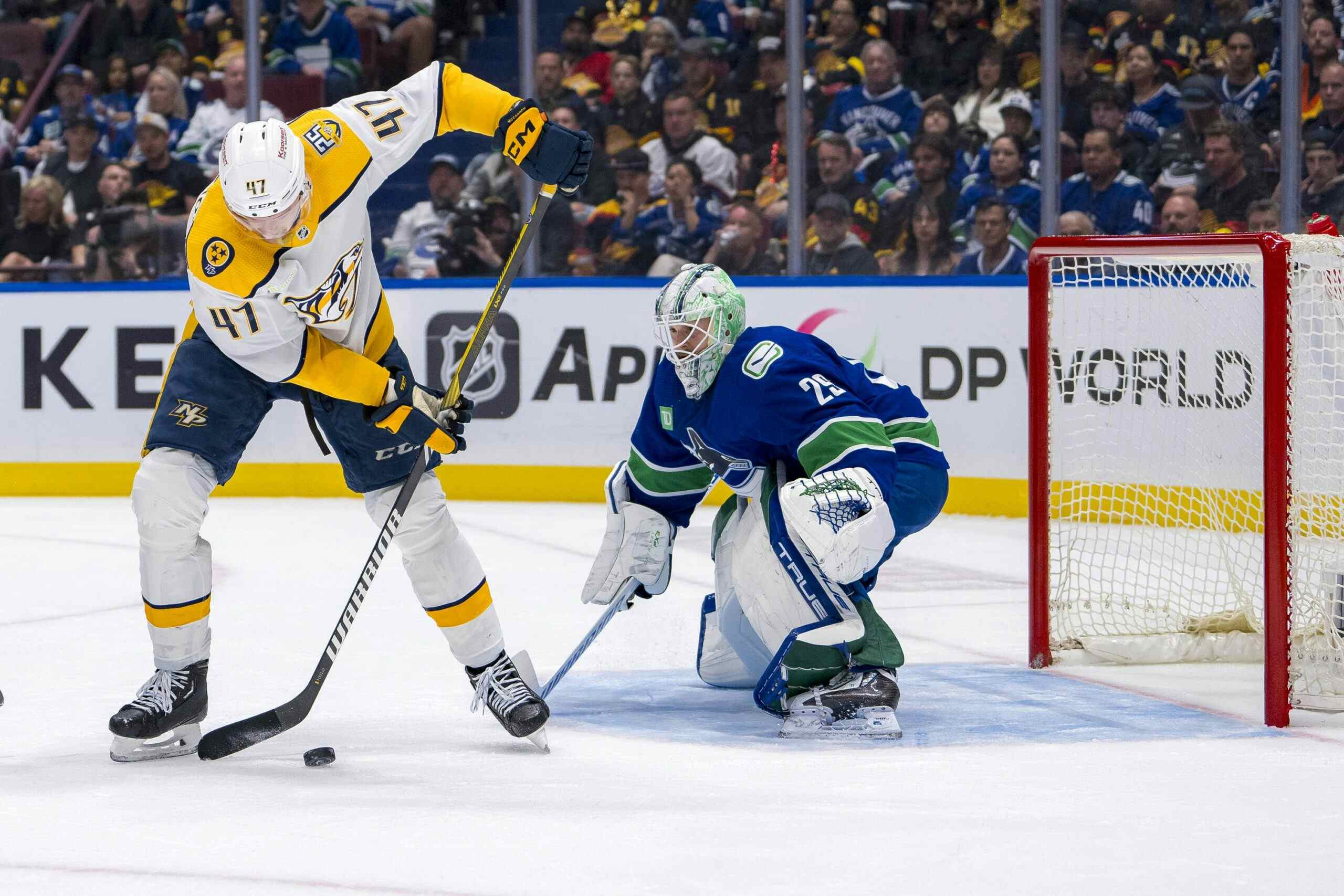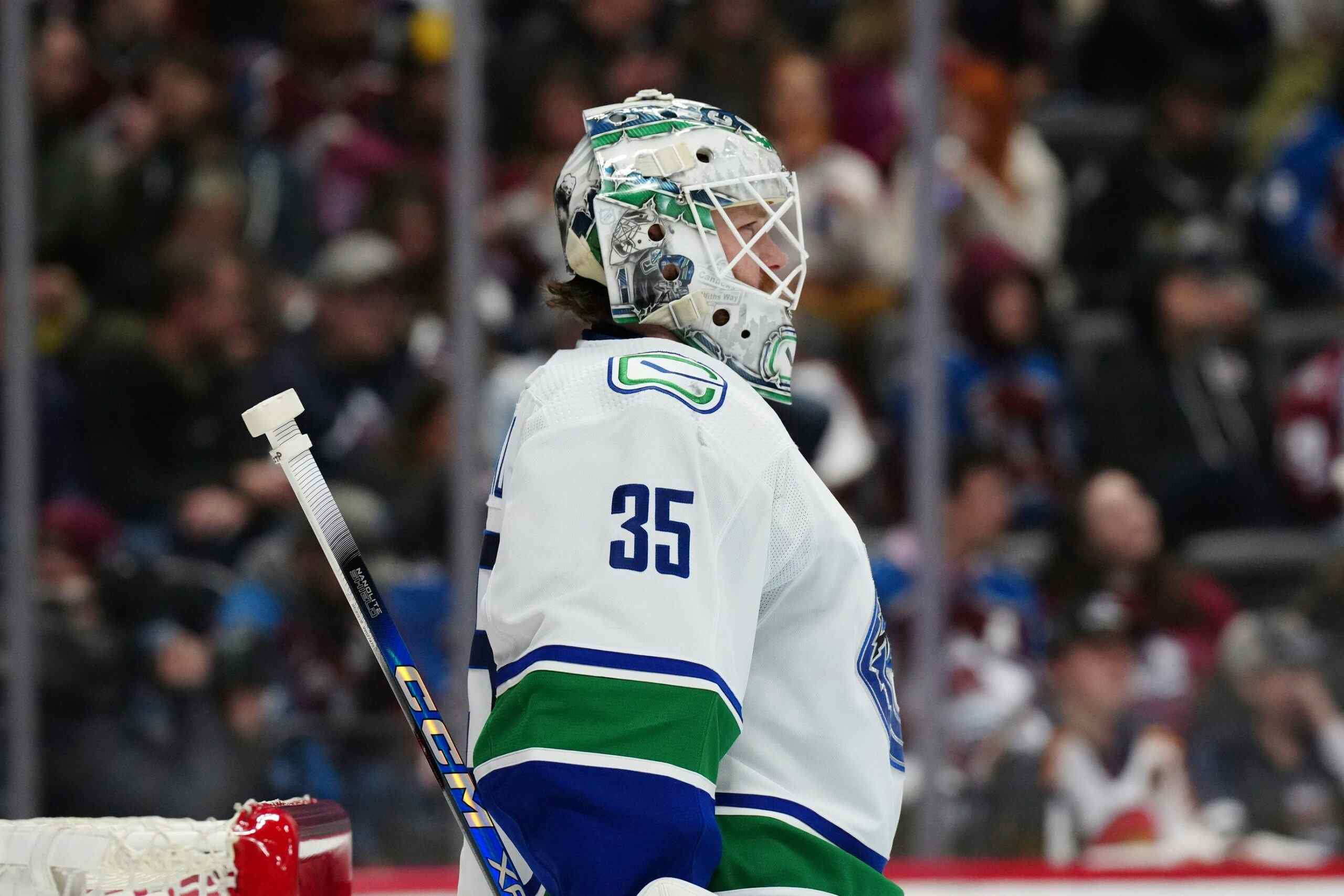Does Vigneault Get “out-coached” in the postseason?

As I’ve already written today, we’ll start with the Canucks postmortems when that becomes appropriate: when the Canucks season is done, dead, and buried in the ground. At the moment, the season is on life-support, but I’m interested in seeing how the Canucks respond to their current deficit before wading into the muck and thoroughly analyzing what happened to the team this season.
Other bloggers, like our buddy Wyatt over at the Legion of Blog have already started in on the "Vigneault’s future and expiry date" discussion. That’s fair enough, and while we’ll still wait until after the season to perform our more detailed autopsy – I want to briefly cover and debunk a widespread, and patently false misconception that many Canucks fans subscribe too: that Vigneault is consistently out-coached in the postseason.
We’ll examine the fossil record, after the jump!
This is Vigneault’s sixth full season as the Canucks head-coach, he’s the winningest head-coach in franchise history, his radical deployment strategies are clearly innovative, and he’s brought the team to within a game of hoisting the most storied championship trophy in all of sports. In his six seasons at the helm of the Canucks, he’s only missed the playoffs once and while this will likely change over the next week, none of his teams have never been eliminated in the first round of postseason.
This current series against the Los Angeles Kings will be Vigneault’s eleventh playoff series as the club’s head-coach, the team has six and lost four (with a fifth loss looming). In Vigneault’s first season with Vancouver, he steered the club past the Dallas Stars before falling to the Anaheim Ducks, the eventual Stanley Cup Winner, in five games in the second round. In his second season with the Canucks, the team missed the playoffs due to the fact that they weren’t very good to begin with and the percentages caught up to them late in the season. In his third season, the club steam-rolled the St. Louis Blues in four, before falling to the Chicago Blackhawks, and the next season they snuck by the Los Angeles Kings in six before losing again to the Blackhawks.
The following season, Vigneault steered the club past the Blackhawks (after the team had a mighty hiccup), past the Nashville Predators, decimated the San Jose Sharks in the Western Conference Final and ultimately fell short against the Boston Bruins in the Stanley Cup Final. That brings us to this season, where Vigneault and the Canucks have lost the first three games of their series against the Los Angeles Kings, and will almost certainly go out in the first round.
If we’re relying on the underlying numbers, the same numbers I used to predict the Los Angeles Kings winning this first round series against the Canucks, Vigneault’s Canucks have only once squandered a series against a team with an inferior fenwick tied. Sadly, that series was the 2011 Stanley Cup Final, but when the opponents goaltender stops ~.960% of all shots on goal – it’s tough to win a series, and I’m not sure that’s on the coaching…
Fenwick tied percentage is the predictive metric I trust the most for forecasting long-term team success, and in every Canucks series loss since 2007, the team that defeated the Canucks was a better possession side than Vancouver was during those seasons. Vigneault has, however, been at the helm while the Canucks swept a club with a superior Fenwick tied (St. Louis in 2009) and defeated another opponent that was a superior possession side (Dallas in 2007). When and if the team does lose their fourth game to the Kings at some point, Vigneault’s record of having only lost a single series against an inferior possession team will remain intact.
Canucks fans always bring up the way Joel Quennville, apparently, man-handled Vigneault during the three Blackhawks series. The fact is, however, that the better team won in all three of those series.
In the first Chicago series, the Canucks took it to the Blackhawks in the first several games. Then, in the second intermission of game four, with his team behind 1-0 (hilariously, on a Darcy Hordichuk go ahead playoff goal) and in danger of falling behind in the series 3-1, Quennville made an essential adjustment. Stop me if this seems familiar, but the Blackhawks had a rental defensive centreman on their roster who was getting his teeth kicked by Vancouver’s top-line. That centres name was Samme Pahlsson. Coach Q replaced Pahlsson with Bolland and that was all she wrote, the Canucks had no answer and were checkmated (Willie Mitchell’s giveaway to Marty Havlat with ninety seconds left in that game, didn’t help matters any).
While one might say that Vigneault failed to adjust to the Bolland-Sedin matchup, this was a result of the Canucks losing to a superior team. Once Q figured out how to matchup most effectively against the Canucks, Patrick Kane was able to go off and exploit the clubs lack of back-end speed (Vancouver’s top-four that season included Ohlund, Bieksa, Mitchell and Salo). I’m just unconvinced that there was any way Vigneault could’ve combatted that.
The next seasons series against Chicago saw more of the same. But that was the Blackhawks team who played Andrew Ladd and Kris Versteeg (both clear top-line forwards) on their third line. They were historically deep. Is that supposed to be on Vigneault somehow?
In the most recent Blackhawks series, the one in which the Canucks had that major hiccup and nearly squandered a 3-0 series lead, the Canucks were rather thoroughly unlucky (in game six especially, and also in allowing Toews to get a late shorty in game seven). Despite that, Vancouver’s club was pretty clearly the superior squad throughout that series. Vigneault gets points from me for this series, because the club had just lost Manny Malhotra ten games before the playoffs began, and they didn’t have the personnel to execute Vigneault’s preferred deployment method (third line takes the toughest minutes, Kesler wrecks the oppositions bottom-6).
Vigneault deployed in this series with a sheltered third line, centered by Mason Raymond, while hard-matching Kesler against Toews. Bolland’s return allowed Coach Q to feed the Patrick Kane/Marian Hossa line a steady diet of shifts against the modified third line (centered again by Mason Raymond) and they briefly gained an upper hand in the series. While the Blackhawks managed to make that series too interesting for comfort, their matchup advantage wasn’t enough and they were still outplayed and out-possessed in both games six and seven.
In the series against the Nashville Predators, it was Vigneault v. Trotz – who most would agree is among the best coaches in the NHL. Between games two and three of this series, Vigneault made an essential adjustment that paid off big time. He decided that he’d give Maxim Lapierre a shot in Manny Malhotra’s third line role. Lapierre was dynamite, and managed to play top-opposition to a draw in three playoff series last year. Lapierre’s suitability in the "enabler" role, allowed Kesler go beast-mode on the Preds bottom six, which, he’d done and done very well during most of that season when he played ahead of Malhotra.
I’ve heard from folks that it was "an obvious adjustment." That’s just absurd. If anyone around the league believed that Lapierre could play that well in the top-9 of a Conference Champion, he would’ve fetched a lot more than a mid-round pick for the Habs and Ducks respectively on the trade market that season.
This deployment strategy (and Niemi’s shakiness) also got the Canucks past the Sharks, and while the Sedins were outmatched against Chara and Bergeron, and Kesler couldn’t really skate in the finals, Lapierres third line remained effective. That was a brilliant adjustment, it checkmated two quality clubs and it’s the type of thing Canucks fans think Vigneault is never able to do. But he’s done it before, and he’s continued to do it even in the team’s current series.
In game one, the Canucks were pulverized at even-strength by Anze Kopitar’s line. It became clear that Samme Pahlsson wasn’t going to be able to handle Kopitar, and that something had to give. Vigneault’s adjustments were perfect, and while the team hasn’t turned the tide in terms of "winning games," they’ve been the better five-on-five team as a result of Vigneault’s adjustments in this series.
What are those adjustments exactly? Well he’s hard-matched Kesler against Kopitar, rationalized his defensive pairings and loaded his top-six with his actual best six forwards (Hansen, Higgins, Sedin, Kesler, Booth, Burrows). The hope has been that Pahlsson, Lapierre and Raymond can play the Stoll line to a draw (something they have managed to do), and that the club can cope playing with a shorter bench. Pahlsson’s inability to counteract Kopitar hurt the Canucks "depth advantage" in the series, but that’s hardly Vigneault’s fault – and he should be credited for reversing the flow of play, and turning it in the Canucks favour this series.
We’re all disappointed that the Canucks are likely to lose in the first round this season, and have yet to win a Stanley Cup with their current core. Some of that is on Vigneault, I suppose, but we’ll get into that once this season is properly said and done. In the meantime, the Los Angeles Kings are another postseason opponent that, guess what, were a better possession side than the Canucks were this season. Losing to this Kings team in the first round was always a very real possibility, and that’s when we thought Daniel would be in the lineup.
Even without Daniel, Vigneault saw what wasn’t working in game one and fixed it, only to be betrayed by the club’s disastrous special teams in game two and unfortunate puck-luck in game three. The Vancouver market is turning their blow-torch on Vigneault’s seat, and it is doubtlessly becoming a sweltering hot seat indeed. Some of that is fair, some it is weird, and some of it is totally baseless. The notion that Vigneault is consistently out-coached in the postseason falls into the third category.
Recent articles from Thomas Drance

